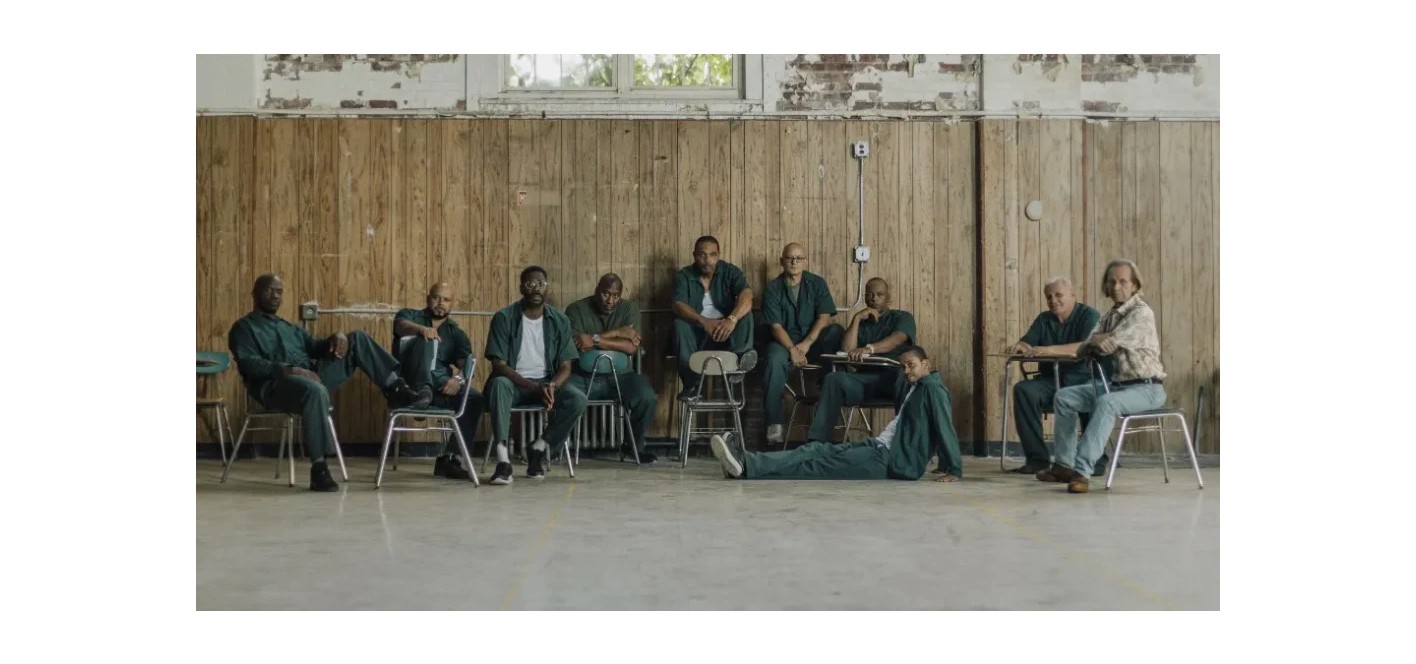Movie Info
Movie Info
- Director
- Greg Kwedar
- Run Time
- 1 hour and 45 minutes
- Rating
- R
VP Content Ratings
- Violence
- 1/10
- Language
- 6/10
- Sex & Nudity
- 0/10
- Star Rating
Relevant Quotes
My brothers and sisters, if anyone among you wanders from the truth] and is brought back by another, you should know that whoever brings back a sinner from wandering will save the sinner’s] soul from death and will cover a multitude of sins.

Director Greg Kwedar’s film introduces us to the innovative program founded at New York’s Sing Sing Correctional Facility located in Ossining,NY– the Rehabilitation Through the Arts (RTA). The script was inspired by John H. Richardson’s 2005 article in Esquire Magazine “The Sing Sing Follies” about a small group ofincarcerated men who since 1996 have been producing a yearly play. Although filled with street language, the film is none-the-less an inspiring experience, enhanced by the fact that several real-life participants join the small core of professional actors.
John “Divine G” Whitfield, (Colman Domingo) is in prison for a crime he didn’t commit. He has tried all the appeals and avenues for gaining freedom, including the Innocent Project, but thus far to no avail. The one thing that has kept him from sinking into dispair is the small RTA group committed to mounting a play each year.
After successfully presenting Shakespeare’s A Midsummer’s Night Dream, the cast meets with their director Brent Buell (Paul Raci) to talk about their next production. Brent, the troupe’s only outsider, founded the group along with John “Divine G.”
When the latter recommends a newcomer be added to their group for their 2005 production, we soon learn that the candidate is one tough cookie. Divine Eye, Clarence Maclin playing himself, is threatening a white prisoner who apparently returned some drugs to him that are fake, and he lets the guy know in no uncertain terms what will happen if he does not make good on this. Watching the exchange is Divine G and his friend Mike Mike (Sean San Jose), so impressed with the man’s dramatic aggressiveness that G talks him into joining the troupe.
After becoming a member of the players Divine Eye asserts there too his strong personality by suggesting that they produce a comedy rather than Shakespeare or the play that Divine G has written, “Fineprint.” This upsets Divine G, because it would set aside the play he has just written. However, the rest of the men like the change. Moderated by Buell, the group throws out a myriad of ideas for their own play, embracing a number of elements– Egyptians, pirates, gladiators, Western, Hamlet, and even Freddy Krueger, knit together by time travel. Quite a mixture! Brent leaves with their ideas, promising to stitch them together into a laughter-inducing work.
Brent returns with a script called “Breaking the Mummy’s Code” that incoporates all their requests. The men read the script approvingly and later audition for parts. Hamlet is one of the characters, and Divine G assumes he has the part—until Brent tells him someone else also is auditioning for it. Divine G is upset that it is Divine Eye. The latter nails the lines, and thus gets the part.
Brent leads the men through warm-up exercises and other bits to loosen their apprehensions. During rehearsals Divine G gets to know Divine Eye better, and when his rival confesses, he is afraid other prisoners will make fun of his acting, Divine G reassures him. At anoher time Divine G becomes aware that Divine Eye has a shiv tucked into his wasteband. He demands that he never bring it again, because if it is discovered, it would shut down their prorgam. At group discussions the men open up to share their hardships and frustrations, a feeling of brotherhood slowly developing. When they leave their gatherings, the harsh demeanor of the guards makes for quite a contrast.
By the time that Divine Eye has an appointment with the parole board and Divine G a clemancy hearing, the two have grown close, leaning on each other for support. At his hearing a board member notes that the former is part of RTA, and he responds warmly how much the program does for its participants. His smile ends when she coldly asks him if he is acting now at this hearing, thus leaving us with a sinking feeling of unease. Performing the play is the climax, as well as learning the fate of Divine G and his fellow actors.
I have seen dozens of prison films, many filled with violence of either the inmates or the guards, or both. This one eschews such scenes, the majority of the scenes focusing on the men as actors, interacting with each other. (We do see Divine G in his own cell at times, the array of books, posters, papers, and a typewriter marking him as very different from his peers.)
Our justice system is set up to punish more than to rehabilitate, to seperate incarcerated men from society and one another (too often in solitary confinement cells); RTA is to humanize, to enable them to become brothers and express the better side of their natures. In spirit it is the same as expressed by James in the above letter and elsewhere in the New Testament—to lead back to the path one who has strayed.
This beautiful film, set amidst an ugly environment, will inspire and help viewers to see that there is hope even for the most depraved of persons. It shares Victor Hugo’s view of humanity summed up in his magnificent novel Les Miserables in which two views of mankind and penology are contrasted. Inspector Javert staunchly believes that there are two kinds of people, those who are good and lawabiding, and those who by their nature are depraved, incapable of changing. In stark contrast there is the kind bishop who gives to the thieving Jean Valjean all of his silverware, thereby converting that hapless victim of the law to change his life and come over to his side, one of love and mercy.
Although the street language makes this a difficult choice, this is a film that youth as well as adults would gain a lot of insight in a discussion of it. This would require planning, including explaining to parents about the film, maybe even inviting them to watch it with the group. Ours is a society in which many citizens still regard prison as a form of punishment, and so are prone to politicians who compalin of the “frills” that kinder treatment of prisoners involve. Do not let this film come and go, like too many other social justice films that eschew car chases and bloody violence. Go yourself, and talk it up with friends and acquaintances!
This review will be in the August issue of VP along with a set of questions for reflection and/or discussion. If you have found reviews on this site helpful, please consider purchasing a subscription or individual issue in The Store.

